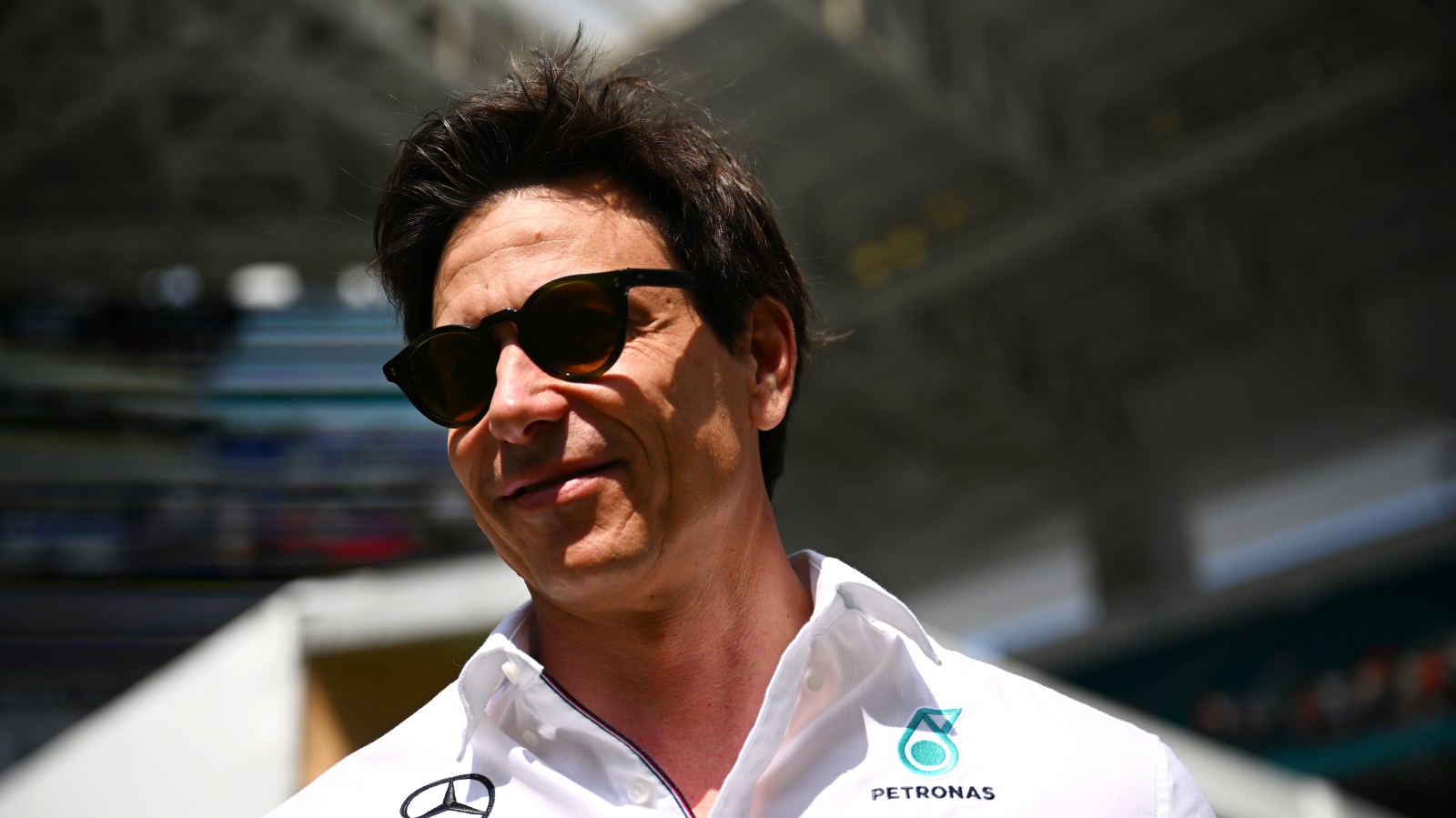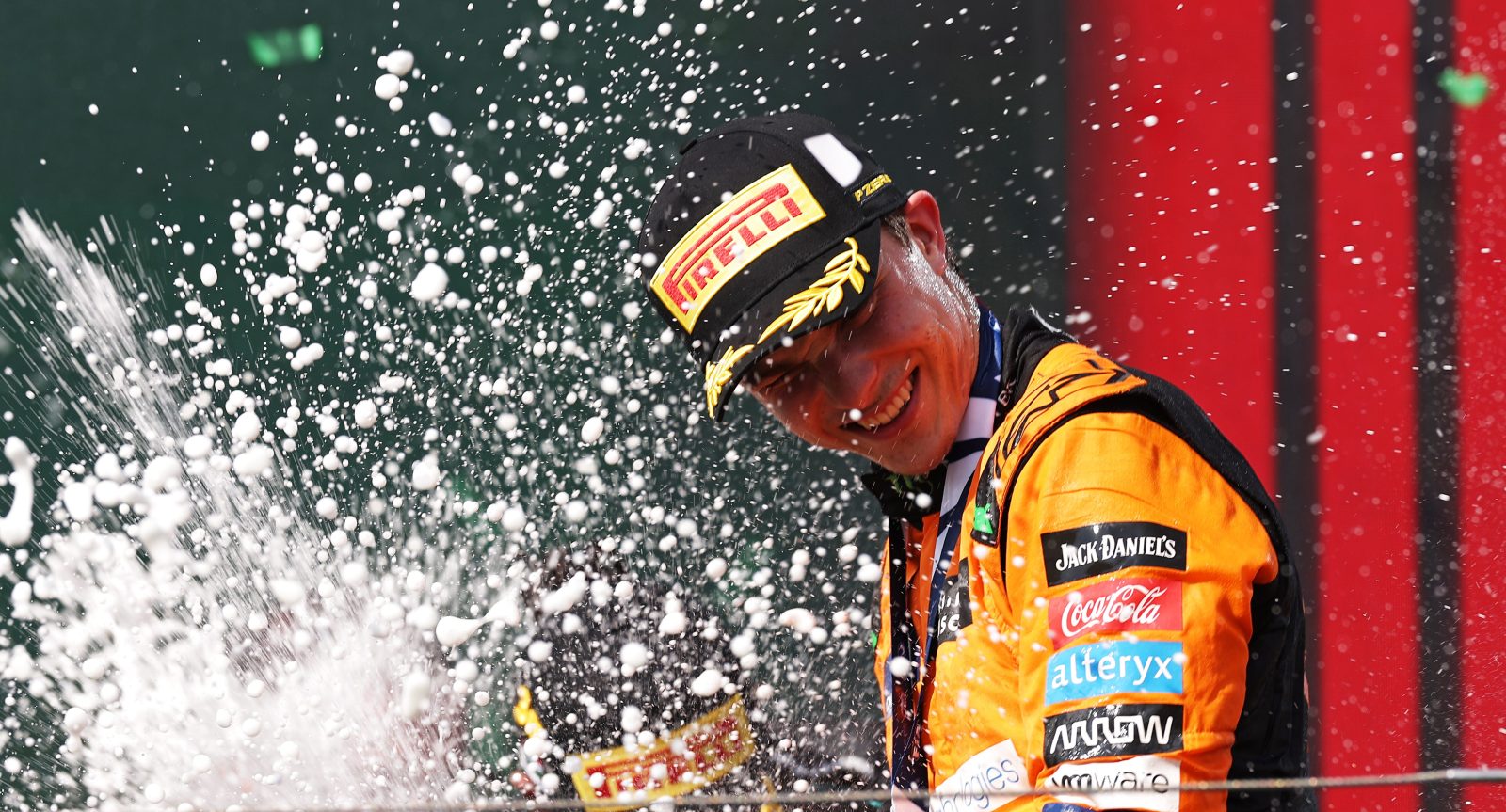Two Melbourne teenagers are lining up on international grand prix grids, raising the profile of women in motorsport and vying to be F1’s first official female driver. It wouldn’t have been possible without another game-changing woman: Susie Wolff.
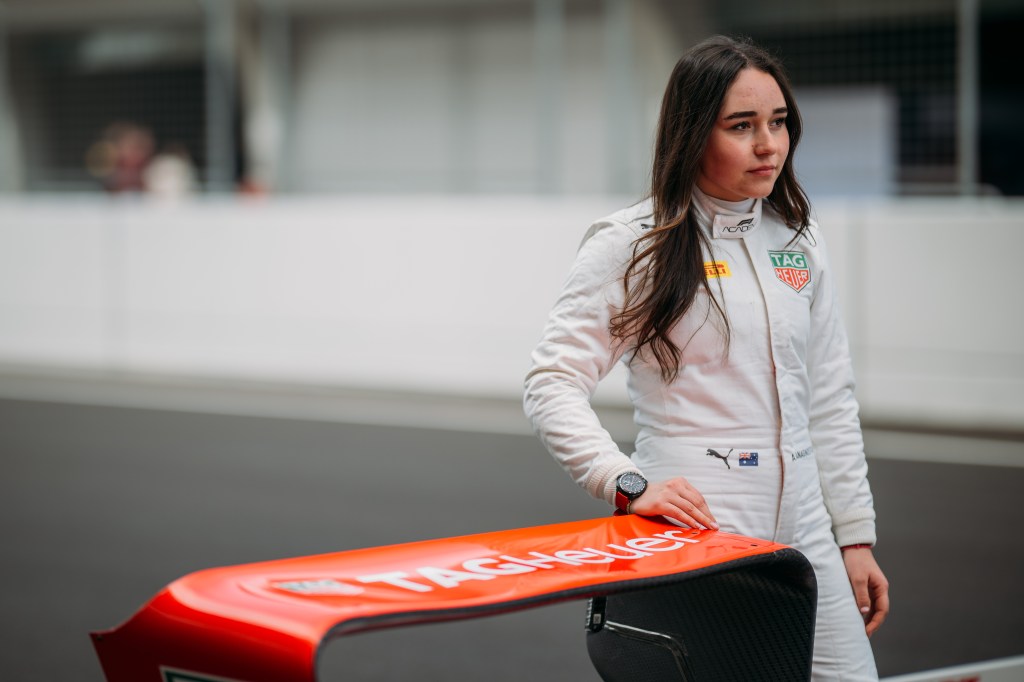
Formula 1 got its start on the Silverstone racetrack in May 1950, when 24 drivers competed to bring home the British Grand Prix trophy.
In the 75 years and 1,137 races since Formula 1 began, no female driver has started a Grand Prix. Susie Wolff, who made history in 2014 by driving in practice at the British Grand Prix, is working to change that – and help put a woman on the grid.
“I see a lot of talent out there, and we know it’s not a matter of ‘if’ but a matter of ‘when.’ But change doesn’t happen overnight,” Wolff tells Forbes Australia.
Wolff retired as a Williams single-seat development driver in 2015. In 2023, she took on the role of managing director of F1 Academy, reporting to Formula 1 President and CEO Stefano Domenicali. ‘The Academy,’ as it is referred to in the Netflix series of the same name, is an official F1 program designed to break down barriers to track entry and facilitate diversity in motorsport.
“On track and off track, we want to help the most talented women progress in this sport. This is an incredibly tough sport to get to the pinnacle of, regardless of gender, but we are making sure young women know that there is a place for them here,” says Wolff.
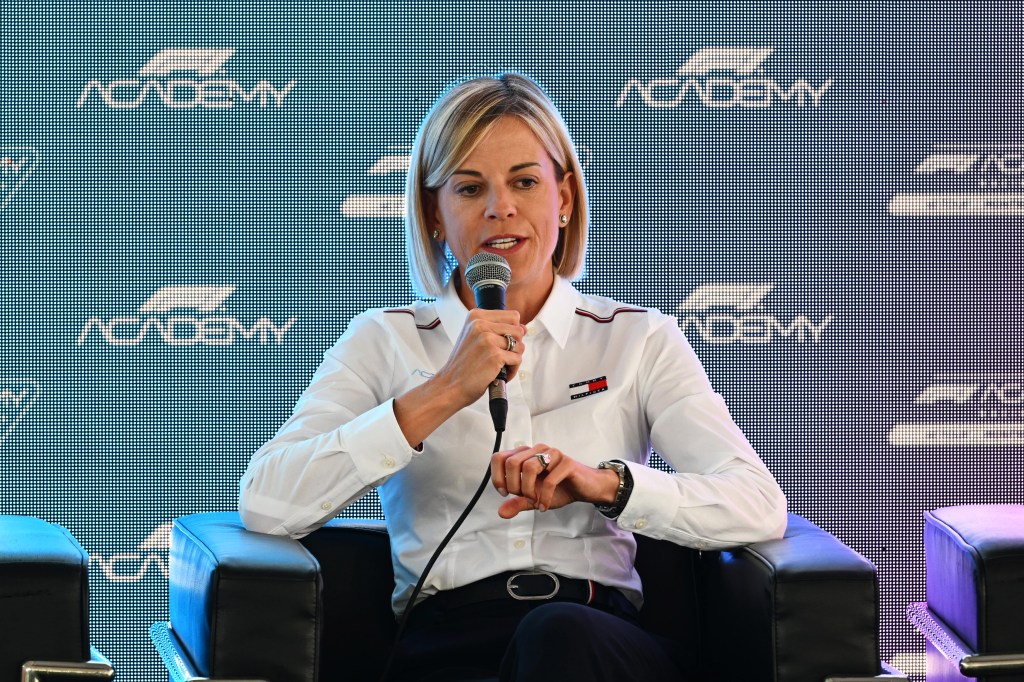
One female driver who is accelerating into the opportunities Wolff and the F1 Academy are building, is 17-year-old Melbourne-born Aiva Anagnostiadis.
Wearing number 11 on her Tag Heuer-liveried racesuit and F4 vehicle, Anagnostiadis is one of 18 women in F1 Academy, and one of two Australian drivers. Joanne Ciconte, 16, also grew up in Melbourne, won the 2023 Australian Karting Championship Pink Plate, and is supported by Wella on the F1 Academy track.
“The global platform we are providing talent in F1 Academy is unparalleled,” says Wolff. “There are only 20 spots on the grid in Formula 1, and getting to the pinnacle of any sport is tough. In the next few years, we hope to see more women progressing up the seater ranks into Formula 3 and Formula 2, and ultimately, Formula 1.”
The importance of consistently climbing the ranks is something Anagnostiadis understands well. She won the Australian Ladies Trophy at the 2021 Australian Kart Championship before moving into competitive open-wheel racing.
Growing up, Anagnostiadis watched her mum Barbara race on Aussie go-kart tracks. Her grandfather owned a kart shop in Melbourne, her father was the trackside mechanic, and her brother, James, is part of the junior program at Mercedes F1.
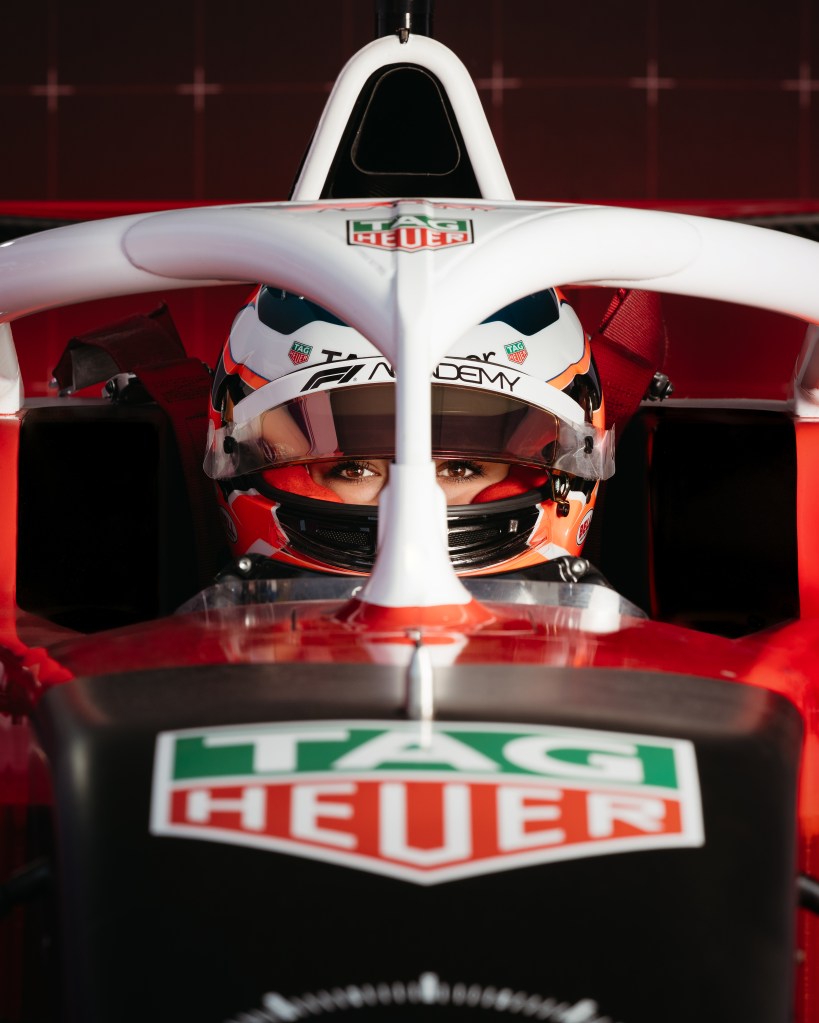
True to the phrase that ‘practice makes perfect,’ an overlooked component of single-seater racing is the financial pressure that comes from logistics and training fees. Affording the practice to become anywhere close to perfect, is vital.
A single training session can be as much as $15,000, according to Anagnostiadis, who is currently training in the Netherlands in the lead up to the Zandvoort Grand Prix on July 31st.
The financial commitment for the Anagnostiadis family is in the hundreds of thousands, and without the program Wolff spearheads, it would be as much as a million dollars. The F1 Academy defrays a significant portion of that cost by bringing in sponsors to enable a socio-economically diverse set of drivers.
“Motorsport is expensive, no matter what gender. However, our drivers only have to contribute a fraction of the budget for the season which is significantly less than the typical cost of a season in Formula 4,” says Wolff.
“I think we have established ourselves as a destination for young female drivers. It’s the parents who now see that there is a clear pathway of opportunity and a financially viable option for their daughters.”
Wolff notes that the exposure from racing in F1 Academy, and being a part of the accompanying Netflix series, can help drivers attract sponsorship dollars. Additionally, the lessons learned in the pressure-cooker of elite competitive sport are valuable life skills.
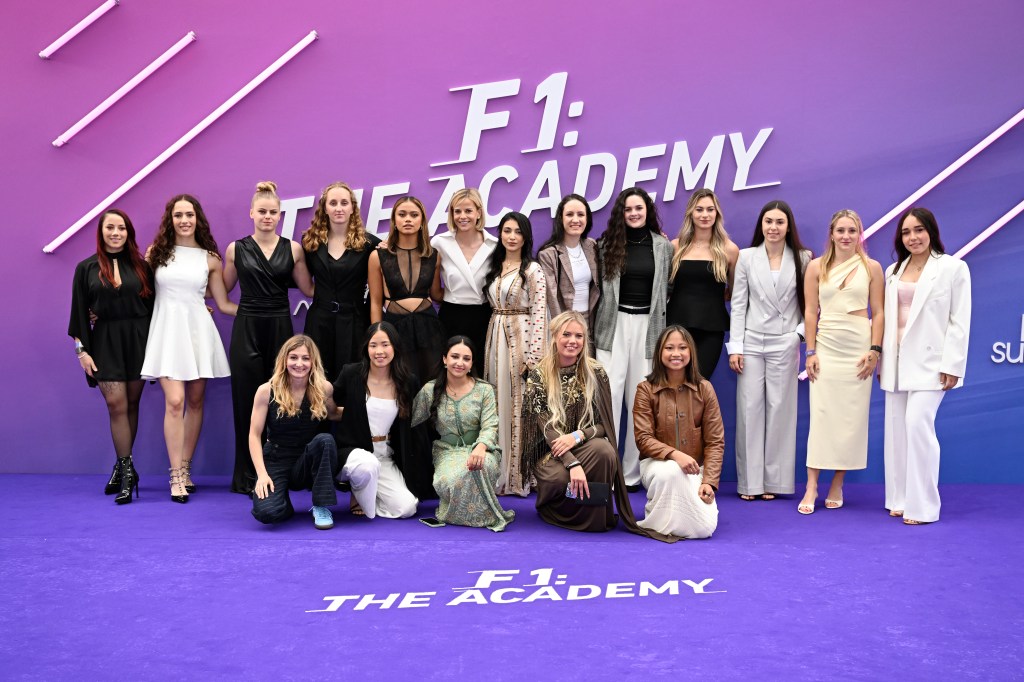
“If you perform – whether on the track or in the boardroom – you possess power. Performance is power,” says Wolff. “If you’ve got something to say, speak up. You don’t need to always be the loudest voice in the room, but if you’ve got something to say, don’t be shy.”
This week, Wolff consolidated her advice, and that of industry insiders, into an F1 Academy ‘Driver Development Hub,’ consisting of both a manual and online webinars to assist young drivers in becoming the best racing drivers they can be. Moving beyond the novelty of being the odd-woman-out is key, Wolff says.
“One important lesson I learned early in my racing career, which I have carried into the business world, is not to get lost in the noise of being one of the only women in the room,” says Wolff.
Being equipped to deal with the physical and mental pressure that is a part of high-octane sport is vital, says Katie Denver, who manages performance and talent development at F1 Academy. She says successful driver development requires instilling technical skills, tactical thinking, and mental conditioning.
“We want to support every aspect of up-and-coming female talent development,” says Denver. “It’s about building well-rounded young drivers who are prepared for the demands and pressures of the highest levels of the sport, both on and off track.”
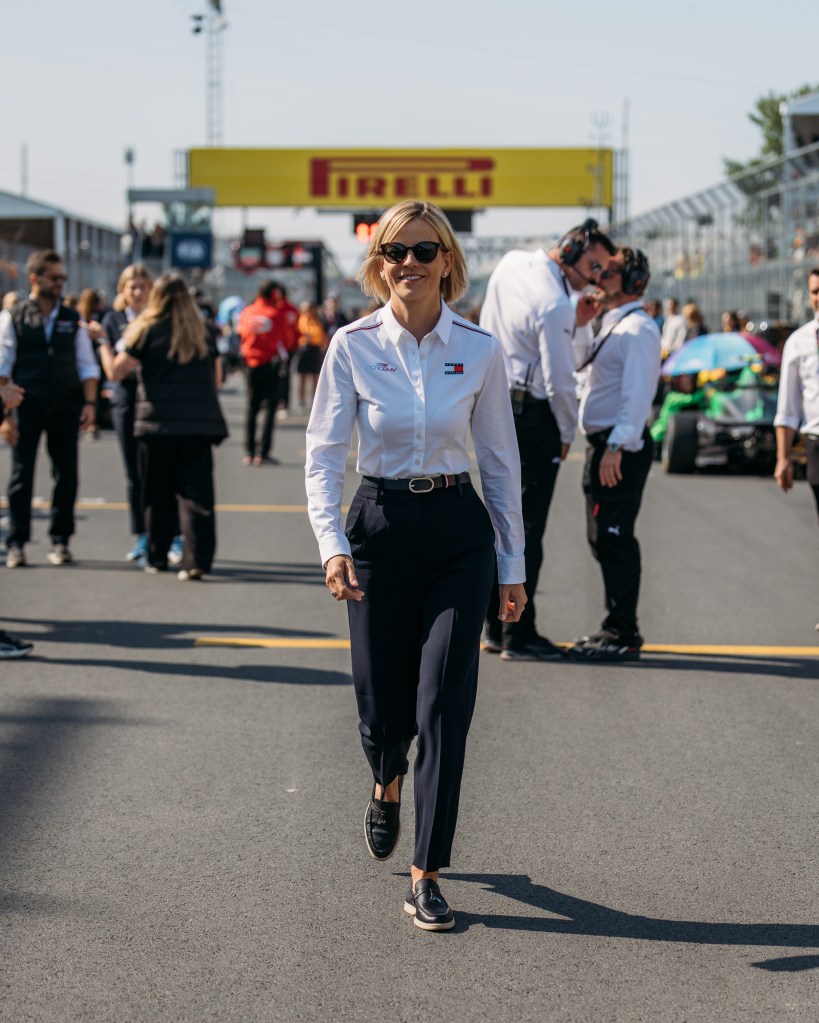
Today, in addition to her work with F1 Academy, the racing pioneer is raising her 8-year-old son Jack alongside her husband, F1 Mercedes team principal Toto Wolff. The family live between their homes in Monaco and England, where the Mercedes F1 team is headquartered.
Both Scottish-born Susie and Austrian Toto are working to push the frontier of motorsport. As is the F1 Academy.
Anagnostiadis, who is now based in northern Italy with her family to be closer to the F1 circuit, says Wolff’s leadership, experience, and insights have been invaluable.
“Susie Wolff has opened doors that girls like me didn’t even know we could knock on,” the Aussie says. “She’s not just leading, she’s changing the game for women in motorsport, and showing us what’s possible when someone believes in you and backs it with action.”
Having an impact on the next generation of motorsport athletes is what continues to drive Wolff forward.
“Our mission is to change the perceptions of our sport, and we’re just getting started.”
Look back on the week that was with hand-picked articles from Australia and around the world. Sign up to the Forbes Australia newsletter here or become a member here.
More from Forbes Australia
\
